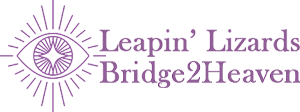Better Parenting with the Enneagram: Nine Types of Children and Nine Types of Parents Ann Gadd
A guide to using the Enneagram for harmonious parent-child relationships
• Examines each of the 9 Enneagram types as parents, including how to utilize your type’s inherent skills to be a better parent
• Explores each of the 9 types as children and teens, including their positive and more challenging traits, their triggers and fears, and how you can help your child find emotional health and achieve their full potential
• Looks at each of the 81 parent-child type combinations and shows how each combination works at its best as well as what happens under pressure
UNDERSTANDING HOW WE PARENT and why helps us to become better parents. Seeing life through the filters of our Enneagram type lets us connect with our children in a healthy and more conscious way.
Certified Enneagram practitioner and experienced parent Ann Gadd explores the 9 Enneagram parenting types and the 9 Enneagram child types, revealing each type’s strengths and challenges as well as exploring all 81 parent-child type combinations. A fun quiz helps you discover your parenting style, whilst highlighting gifts as well as areas for improvement. Getting to grips with the emotional inner core of your kids, you gain insight into positive and more challenging traits of each Enneagram type child and how to encourage the best from them. Better Parenting with the Enneagram is like having your own personal manual--for yourself and your child. You’ll learn what drives them, what they fear most, what inspires them, and most importantly, how you can best relate to them, whether they are young kids, pre-teens, or teenagers.
The systematic approach of the Enneagram offers an opportunity for learning to better understand your child, react more appropriately in stressful situations, and improve your overall relationship. You’ll learn to recognize and navigate not only your child’s triggers but also your own. Tumultuous emotional storms might be averted by becoming aware of what kind of response your child needs in certain situations. Feeling more understood will create a deeper parent-child bond, because being present with our children is the best gift we can give them.


